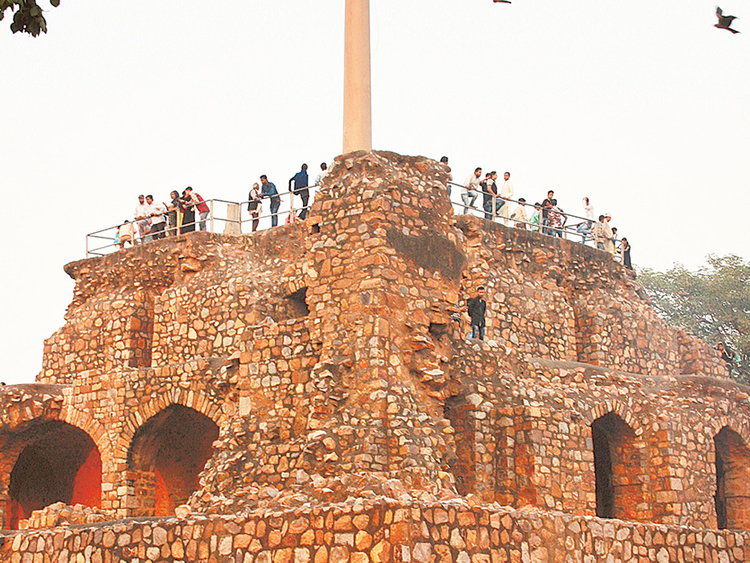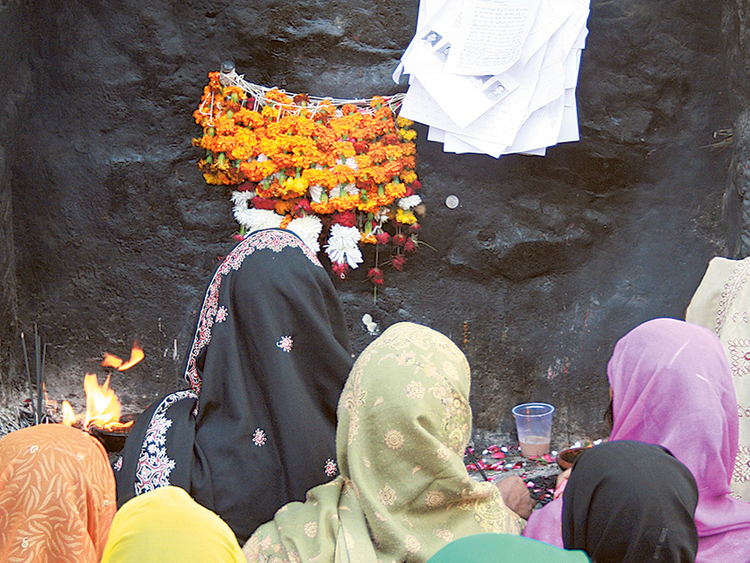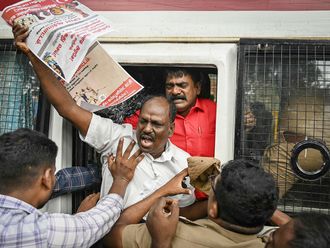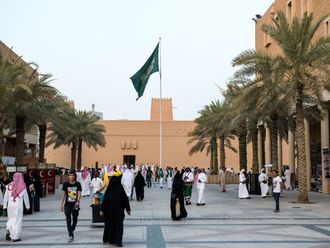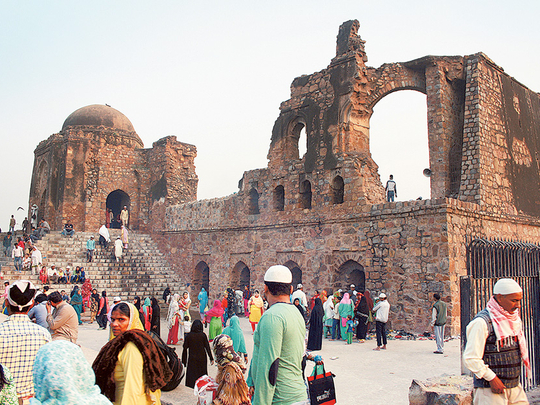
New Delhi: The place is akin to a weekly fair; the only difference being people come here seeking desires to be fulfilled.
Ensconced between Feroz Shah Kotla Cricket stadium and the Ring Road, the 14th century castle in New Delhi was built by Emperor Feroz Shah Tughlaq in AD1354.
People pour in at the Feroz Shah fort every Thursday to deliver petitions to wish-granting djinns (spirits). Among the ruins of the castle, it is said, is the hub of the djinns and thousands are believed to have been living here for centuries.
As a devout explained: “Djinns are formless spirits and have the power to change destinies of human beings. They can be both good and bad, but we, the regulars here, believe djinns protect us from evil and fulfil wishes.”
Seeking blessings and wishing for boons and protection, people gather at the over 600-year-old monument, the Archaeological Survey of India has nothing to do with. The entire structure and the 15-metre high walls of the citadel are dilapidated. Though it no longer looks impressive, the ruins show the fort must have looked magnificent in its heyday.
But for the hopeful, it is not about how the structure looks. They are there for a purpose. The dark and narrow passages lead to cave-like cubicles that are filled with smoke. Flickering candles and an overpowering scent of rose petals and incense sticks at the alcoves keep increasing, as men and women, with children in tow, silently say their prayers.
Photocopies of confession letters bearing photographs are either left there or pinned on burnt walls for the djinns to read. People also stick coins on the walls and hope to see a ray of light following it.
Nazima, a burka-clad woman from Hyderabad sits with her hands cupped in hope. Her mother Shaheen says: “Fertility is the issue with her. Even after four years of marriage, she is childless. We have come to the shrine hoping the djinns will grant us the wish.”
According to Islam, djinns are supernatural beings. The belief at the Feroz Shah shrine is that djinns are fast readers and by sunset, when people stream out of the castle and the premises are vacant, the djinns have already read or imbibed all wishes of the people. As a weekly routine, the groundskeepers then collect the huge pile of letters and burn them.
From a son’s job to the marriage of a daughter and from hoping to be respected and looked after in old age to confessing their wrong deeds, people come with all sorts of problems expecting their prayers to be answered.
A young Delhi couple Jiten Kumar and Sumaira have come to pay their obeisance with a wish they preferred not to disclose. Whereas Aqueel Ali has come seeking justice for his son, who he assures has been framed by the police in a false cheating case. “I want justice from the court and hope my son gets bail soon,” he said with tears rolling down his cheeks.
A woman, accompanied by two young daughters had come to pray that her husband would stop consuming alcohol and pay heed to his struggling tyre-repair business.
Many visit the castle regularly — some because they won’t give up hope, others to thank the djinns for wishes fulfilled.
Its customary for many to feed kites and crows once their wishes are granted.
The lawns buzz with activity throughout the evening. People come in with their families and friends and laze around. While some enjoy the sweet rice and biryani distributed by the devout, others approach the numerous vendors selling snacks outside the fort premises.
According to Pritam, a vendor selling ice cream at the venue for the past two decades, “The crowd seems to be multiplying with every passing year. Except a few guards manning the area, no police or security assistance is required or sought by anyone.”
Shaheen has been visiting the shrine on and off for the past seven years. Refusing to divulge the purpose of her visit, she says, “I have faith in djinns and feel solace by coming here.”
Rakesh, 35, is ecstatic, “I first visited the shrine five years ago at the behest of a close friend. Working since the age of 22, I kept switching jobs and there was no stability in life. But as if by miracle everything changed after my first visit. I found a good accountancy job and got married the same year.”
He makes it a point to pay his respects at the fort, along with his wife and two children at least once a month. “It is our way of conveying thanks to the supernatural powers and it is a good family outing,” he stated.
Even though most of the thousands who descend on the shrine from all over the country are Muslim, many Hindus are also frequent visitors. “It is not about religion. We want to rid ourselves of bad spirits,” explained Kamal.


